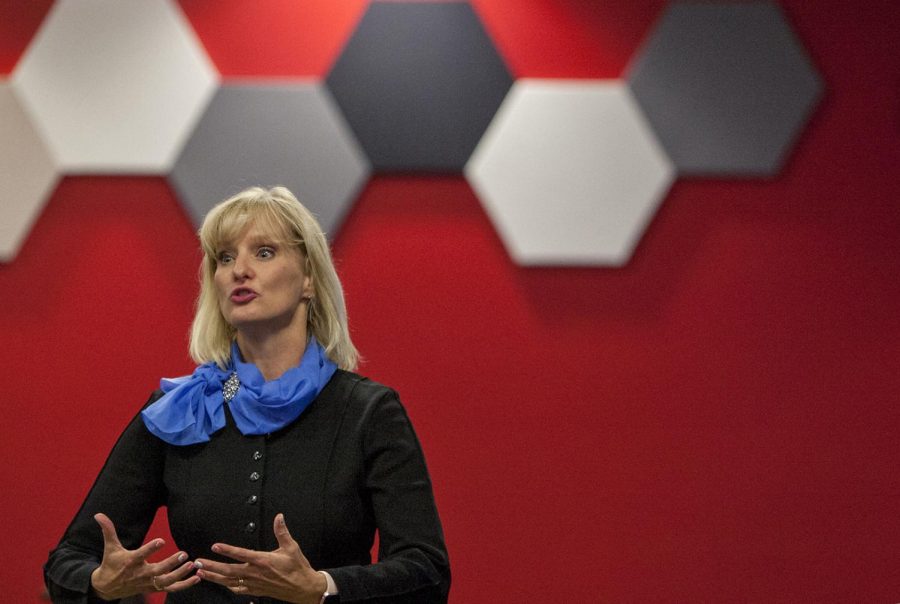‘Salons’ focuses on incarcerated men, songwriting
September 13, 2017
Faculty and students gathered Tuesday to attend the “Second Tuesday Salons,” a monthly event hosted by WKU which allow faculty, staff, students and community members to gather and discuss “complex contemporary issues.”
The September salon was hosted by new WKU faculty member Catherine Wilson. Wilson, an assistant professor of music education, gave a presentation titled “If You Listen, I’ll Tell You How I Feel: Incarcerated Men Expressing Emotion Through Songwriting.”
Wilson gave her presentation, which included many examples of songs that prisoners wrote under her guidance. A question and answer session with members in the audience followed her talk.
The presentation was based on a 2013 fellowship Wilson completed with the University of Iowa, in partnership with the prison choir at the Iowa Medical and Classification Center, a medium-security prison in Coralville, Iowa.
There were 22 participants in her research, including incarcerated men ranging in age from 18 to 72. Wilson said most of the men she worked with were in prison under charges of drugs and alcohol.
Wilson said during her presentation that one of the biggest things she experienced during her research was the overwhelming power of music.
“Music heals people from the inside,” Wilson said in her presentation. “Writing songs helps people break down the unmanageable, horrific events into manageable chunks.”
While conducting the prison choir and working directly with incarcerated men during her research, Wilson said she learned a great deal about the prison system.
“I think one of the biggest misconceptions about prisoners is that they’re all violent,” Wilson said. “They’re mostly people who have done something bad, but they’re not necessarily bad people.”
Wilson was first connected with the prisoners through helping conduct the prison choir. A prisoner approached her with a poem and suggested turning it into a song. Wilson began a songwriting workshop, which still is still active at the prison.
“The satisfaction that people find with music is the most surprising thing I learned teaching songwriting,” Wilson said. “It’s crazy powerful what some of the men were able to express through their writing.”
Wilson is not currently teaching her research to her music education classes, but said she is hopeful to incorporate it in the near future. She is also interested in starting a group for songwriters, where people could “come together to write, sing, and casually record songs.”
Marshall County freshman Chloe Waggoner first heard about Wilson’s presentation through her communication class. She said she was attracted to the event because she was interested in learning more about the prison system.
“I assumed at first that most prisoners were very closed off,” Waggoner said. “But hearing how they opened up through songs and built confidence reminded me that they’re people too.”
Reporter Emily DeLetter can be reached at 270-745-6011 or [email protected].






















![Students cheer for Senator at Large Jaden Marshall after being announced as the Intercultural Student Engagement Center Senator for the 24th Senate on Wednesday, April 17 in the Senate Chamber in DSU. Ive done everything in my power, Ive said it 100 times, to be for the students, Marshall said. So, not only to win, but to hear that reaction for me by the other students is just something that shows people actually care about me [and] really support me.](https://wkuherald.com/wp-content/uploads/2024/04/jadenmarshall-600x422.jpg)

